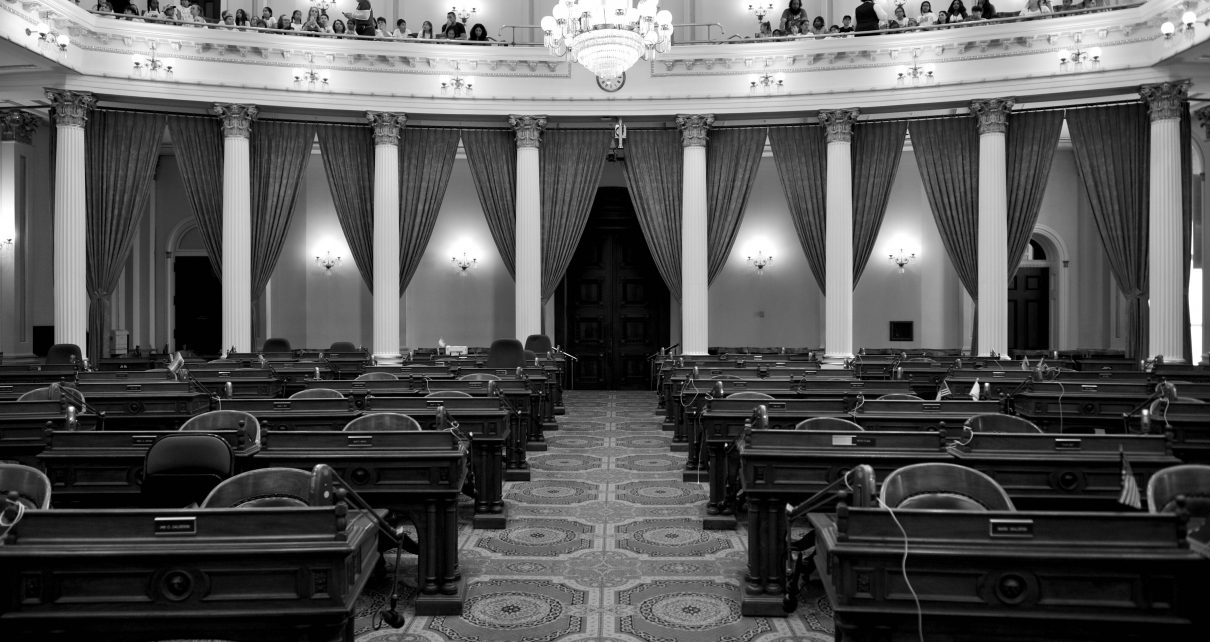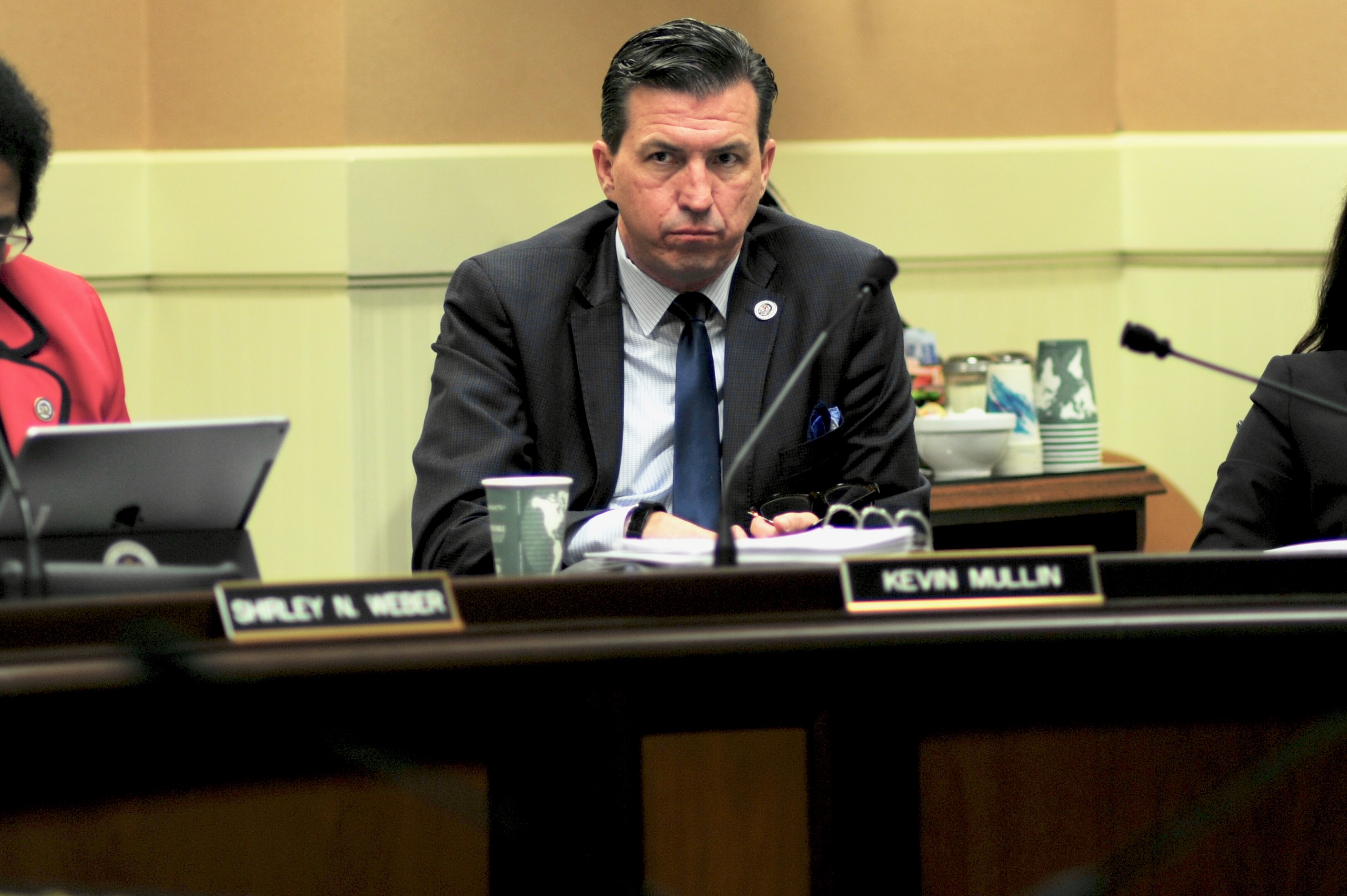
California Assembly Chambers. (Photo: Kevin Sanders for California Globe)
California Political Reform Act General Provisions
‘State and local government should serve the needs and respond to the wishes of all citizens equally, without regard to their wealth’
By Chris Micheli, January 10, 2022 2:18 am
The Political Reform Act (PRA) was enacted by the voters at the June 1974 primary election as Proposition 9. The PRA is Title 9 of the California Government Code. Title 9 is entitled “Political Reform” and is comprised of Sections 81000 – 91014. Chapter 1 of Title 9 contains general provisions applicable to the rest of the PRA’s statutory provisions.
Section 81000 provides that the title of this law is the “Political Reform Act of 1974.” Section 81001 contains the following eight findings and declarations by the People:
- State and local government should serve the needs and respond to the wishes of all citizens equally, without regard to their wealth;
- Public officials, whether elected or appointed, should perform their duties in an impartial manner, free from bias caused by their own financial interests or the financial interests of persons who have supported them;
- Costs of conducting election campaigns have increased greatly in recent years, and candidates have been forced to finance their campaigns by seeking large contributions from lobbyists and organizations who thereby gain disproportionate influence over governmental decisions;
- The influence of large campaign contributors is increased because existing laws for disclosure of campaign receipts and expenditures have proved to be inadequate;
- Lobbyists often make their contributions to incumbents who cannot be effectively challenged because of election laws and abusive practices which give the incumbent an unfair advantage;
- The wealthy individuals and organizations which make large campaign contributions frequently extend their influence by employing lobbyists and spending large amounts to influence legislative and administrative actions;
- The influence of large campaign contributors in ballot measure elections is increased because the ballot pamphlet mailed to the voters by the state is difficult to read and almost impossible for a layperson to understand; and
- Previous laws regulating political practices have suffered from inadequate enforcement by state and local authorities.
Section 81002 states that the People have enacted the PRA to accomplish the following six purposes:
- Receipts and expenditures in election campaigns should be fully and truthfully disclosed in order that the voters may be fully informed and improper practices may be inhibited.
- The activities of lobbyists should be regulated and their finances disclosed in order that improper influences will not be directed at public officials.
- Assets and income of public officials which may be materially affected by their official actions should be disclosed and in appropriate circumstances the officials should be disqualified from acting in order that conflicts of interest may be avoided.
- The state ballot pamphlet should be converted into a useful document so that voters will not be entirely dependent on paid advertising for information regarding state measures.
- Laws and practices unfairly favoring incumbents should be abolished in order that elections may be conducted more fairly.
- Adequate enforcement mechanisms should be provided to public officials and private citizens in order that this title will be vigorously enforced.
Section 81003 specifies that the provisions of the PRA should be liberally construed to accomplish its purposes. Section 81004 provides that all reports and statements filed under the PRA must be signed under penalty of perjury and verified by the filer. For campaign committees, their reports or statements must be signed and verified by the treasurer, and a report or statement filed by any other person must be signed and verified by the filer.
In addition, under Section 81004, if the filer is an entity other than an individual, the report or statement must be signed and verified by a responsible officer of the entity or by an attorney or a certified public accountant acting as agent for the entity. Note that every person who signs and verifies any report or statement required to be filed under this title which contains material matter which that person knows to be false is guilty of perjury.
Section 81004.5 allows any report or statement to be amended by the filer at any time. Moreover, amending an incorrect or incomplete report or statement may be considered as evidence of good faith.
Section 81005 provides that, if a statement or report has a filing deadline that on a Saturday, Sunday, or official state holiday, the filing deadline for the statement or report is extended to the next regular business day. However, this extension does not apply to certain contribution reports and independent expenditure reports required.
Section 81006 prohibits any fees or charges from being collected by any officer for filing of any report or statement, except for those noted in other provisions of the PRA. Section 81007 specifies that, when a report or statement is sent by first-class mail or other overnight delivery service, it is deemed to have been received by the officer on the date of the deposit in the mail or of receipt by that delivery service.
In addition, pursuant to Section 81007, mail which is not received by the filing officer is presumed not to have been sent unless the filer possesses a post office or delivery service receipt establishing the date of deposit and the name and address of the addressee.
Section 81007.5 allows any report or statement required to be filed to be faxed by the applicable deadline, provided that the required originals or paper copies are sent by first-class mail or by any other personal delivery or guaranteed overnight delivery service within 24 hours of the applicable deadline and provided that the total number of pages of each report or statement faxed is no more than 30 pages.
Section 81008 specifies that a report or statement filed under the PRA is a public record open for public inspection and reproduction during the filing officer’s regular business hours, commencing as soon as practicable, and no later than the second business day after the day the report or statement was received.
In addition, pursuant to Section 81008, a filing officer is required to make electronically filed data publicly available on the Internet as soon as possible after it is received. Moreover, conditions are prohibited from being imposed upon persons asking to inspect or reproduce reports and statements filed under this title, and information or identification cannot be required from these persons.
Finally, copies must be provided at a charge not to exceed ten cents per page. And, the filing officer may charge a retrieval fee not to exceed five dollars per request for copies of reports and statements which are five or more years old.
Section 81009 provides that statements of organization, registration statements, and original campaign statements of persons holding elective state office, candidates for any such office, committees supporting any such officeholder or candidate, and committees supporting or opposing statewide measures, must be retained by filing officers indefinitely. In addition, original statements of economic interests of persons holding statewide elective office must be retained by filing officers indefinitely. Finally, after an original report or statement or a copy filed in a paper format has been on file for at least two years, the officer with whom it is filed may comply with this section by retaining an electronic copy available for public inspection instead of the original report or statement or copy.
Section 81009.5 requires any local government agency which has enacted, enacts, amends, or repeals an ordinance or other provision of law affecting campaign contributions and expenditures to file a copy of the action with the FPPC. Section 81010 requires the filing officer to perform specified during regarding reports and statements filed with the filing officer.
Section 81010.5 provides that a filing officer’s or filing official’s failure to comply with a duty or to provide notice of a filing or disclosure obligation does not affect a person’s duty to file statements and reports disclosing information as required by the PRA or any enforceable conflict of interest code.
Section 81011.5 prohibits the election precinct of a person signing a statewide petition from being required to appear on the petition when it is filed with the county elections official. Section 81012 provides that the PRA may be amended or repealed in one of two ways:
The PRA may be amended or repealed by a statute that becomes effective only when approved by the state’s voters.
The PRA may be amended to further its purposes by statute, passed in each house by rollcall vote entered in the journal, two-thirds of the membership concurring and signed by the Governor, if at least 12 days prior to passage in each house the bill in its final form has been delivered to the FPPC for distribution to the news media and to every person who has requested the FPPC to send copies of such bills to that person.
Section 81013 states that nothing in the PRA prevents the Legislature or any other state or local agency from imposing additional requirements on any person if the requirements do not prevent the person from complying with the PRA. If any act of the Legislature conflicts with the provisions of the PRA, then the PRA prevails.
Finally, Section 81015 provides a savings clause so that, if any provision of the PRA is held to be invalid, the remainder of the PRA to the extent it can be given effect, or the application of such provision to persons or circumstances other than those as to which it is held invalid, is not be affected thereby, and to this end the provisions of the PRA are severable.
- Frequently Asked Questions About Ethics Training for Local Agencies - April 24, 2024
- Frequently Asked Questions about Privileges of Voters in California - April 23, 2024
- Does a Bill Need Statutory Construction Guidance? - April 22, 2024




